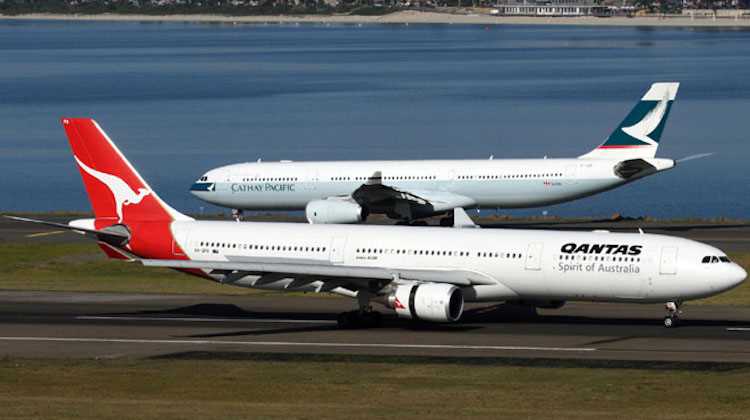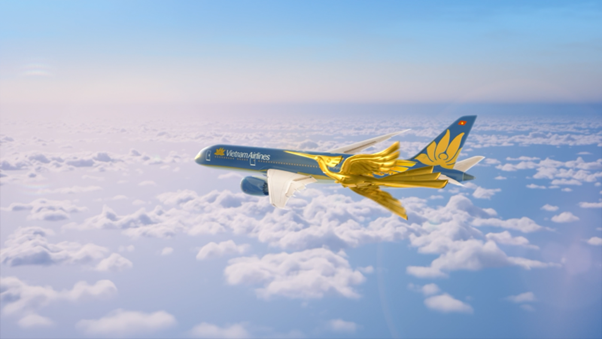Australia’s International Air Services Commission (IASC), which manages the nation’s traffic rights, said on May 24 it planned to knock back Qantas’s request to forge a deeper codeshare agreement with Hong Kong-based Cathay Pacific.

A pair of Airbus A330s from Cathay Pacific and Qantas at Sydney airport.
The draft ruling argued allowing Cathay Pacific to add its CX airline code on 35 Qantas-operated return flights a week from Brisbane, Melbourne and Sydney to Hong Kong was likely to “entrench and expand the market position” of the two airlines to the detriment of Virgin Australia’s competitive position and the position of any potential future entrants on the route.
“If this occurs, it is likely to weaken competition on the route, leading to an increase in prices and/or a reduction in other benefits to consumers,” the IASC draft decision said.
“The Commission finds that the likely public benefits of the variation are substantially outweighed by the likely public detriment that would follow from the proposed aviation.”
The codeshare flights would only be sold as part of a through journey involving connections either beyond Hong Kong on Cathay Pacific or its regional wing Cathay Dragon to destinations in India, Sri Lanka and Vietnam, among other countries, or to other Australian domestic destinations from Brisbane, Melbourne and Sydney on Qantas.
The airline had argued the codeshare agreement was a pro-competitive move designed to offer passengers more choice on a greater number of city pairs and have no adverse impact on the competitive dynamics on point-to-point routes between Australia and Hong Kong.
However, the IASC disagreed, saying in its draft decision the proposed codeshare was likely to lead to a market structure which made it more difficult for Virgin Australia to compete, as well as raise the barriers for new entrants on the route.
“It is likely Virgin will have a weakened, and perhaps materially weakened, position that may make it difficult for Virgin to sustain its operations,” the IASC draft decision said.
“The commission considers it likely that a material decline in Virgin Australia’s market position would cause it to reconsider its service offerings on the route.
“Any reduction or cessation of Virgin Australia’s service offerings on the route would be detrimental to competition as it would then leave the two largest carriers, Qantas and Cathay Pacific, to operate under the proposed code share arrangement.”
Qantas group chief executive Alan Joyce said the IASC got it wrong.
“We don’t think that is a good decision,” Joyce told reporters on the sidelines of the International Air Transport Association (IATA) annual general meeting in on Seoul on Monday.
“We are actually going to appeal it.”
Joyce said the claimed public benefits Qantas put before the IASC had not been fully evaluated.
“We will go back to the IASC and make sure we are very clear on what we believe those public benefits are,” Joyce said.
Australian Aviation










